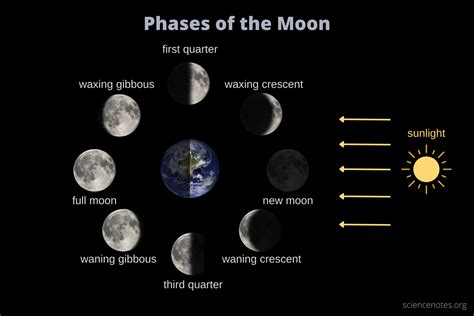Beyond duration, what sleep hack optimizes male recovery & performance?

For men striving for peak physical and mental performance, the common advice to simply get enough sleep often falls short. While duration is undoubtedly important, true optimization of recovery and performance hinges on a deeper understanding of sleep quality and specific hacks that go beyond merely clocking in eight hours. It’s not just about the quantity of sleep, but the profound quality of rest that truly matters.
The Critical Role of Sleep Architecture: Deep Sleep & REM
To truly optimize recovery, men must prioritize the quality of their sleep, specifically the proportion and consolidation of deep (slow-wave) sleep and REM sleep. Deep sleep is the bedrock of physical restoration, facilitating muscle repair, tissue growth, and the release of growth hormone crucial for recovery after strenuous activity. For men, this phase is particularly vital for maintaining robust physical form and minimizing injury risk.
REM (Rapid Eye Movement) sleep, on the other hand, is paramount for cognitive function, emotional regulation, and memory consolidation. Adequate REM sleep supports problem-solving skills, creativity, and the ability to handle stress effectively, all of which are essential for high-performance living. Neglecting these stages, even with sufficient overall duration, can leave one feeling sluggish and mentally foggy.

Harnessing Your Circadian Rhythm for Peak Energy
One of the most powerful, yet often overlooked, sleep hacks is aligning your sleep with your body’s natural circadian rhythm. This internal 24-hour clock dictates your sleep-wake cycle, and consistency is its best friend. Going to bed and waking up at roughly the same time every day, even on weekends, helps to regulate hormone production, including melatonin (the sleep hormone) and cortisol (the stress hormone).
Beyond a consistent schedule, strategic light exposure plays a significant role. Exposing yourself to natural light first thing in the morning signals to your body that it’s time to be awake and alert, helping to entrain your rhythm. Conversely, minimizing exposure to blue light from screens in the hours leading up to bedtime prevents the suppression of melatonin, allowing for an easier transition into sleep.

Optimizing Your Sleep Sanctuary: Environment as a Performance Tool
Your bedroom should be a dedicated temple for sleep, optimized for maximal rest. Three key environmental factors significantly impact sleep quality:
- Temperature: Most experts recommend a cooler room, generally between 60-67°F (15-19°C), to facilitate the body’s natural drop in core temperature required for initiating and maintaining sleep.
- Darkness: Even small amounts of light can disrupt melatonin production. Invest in blackout curtains or a sleep mask to ensure complete darkness.
- Sound: Eliminate disruptive noise with earplugs, white noise machines, or soundproofing. Consistent, low-level ambient noise can be less disruptive than sudden changes.
Pre-Sleep Rituals: Winding Down for Deeper Rest
The hour before bed is crucial for signaling to your body that it’s time to transition from activity to rest. Establishing a consistent pre-sleep routine can dramatically improve sleep onset and quality. This might include:
- Avoiding stimulants: Cut off caffeine intake several hours before bed and limit alcohol, which can fragment sleep even if it initially makes you feel drowsy.
- Digital detox: Power down all screens (phones, tablets, computers, TVs) at least 60-90 minutes before sleep to avoid blue light exposure and mental stimulation.
- Relaxing activities: Engage in calming activities such as reading a physical book, taking a warm bath, meditating, or light stretching.

Nutrition, Hydration, and Exercise: Pillars of Restful Sleep
What and when you eat and drink, alongside your physical activity levels, profoundly impact sleep quality. Avoid heavy, rich, or spicy meals close to bedtime, as digestion can interfere with sleep. Opt for a lighter, balanced dinner several hours before sleep, potentially including foods rich in magnesium and tryptophan, which support relaxation.
Staying adequately hydrated throughout the day is important, but limit fluid intake in the hour or two before bed to minimize nocturnal awakenings for bathroom breaks. Regular physical activity is a known booster of sleep quality, especially deep sleep. However, intense exercise too close to bedtime can elevate core body temperature and stimulate the nervous system, making it harder to fall asleep. Aim to finish vigorous workouts at least 3-4 hours before heading to bed.

The Male Physiological Edge: Testosterone and Muscle Repair
For men, superior sleep quality has direct and significant implications for vital physiological processes. Adequate deep sleep is critical for the body’s natural production of testosterone, a hormone essential for muscle mass, bone density, energy levels, and libido. Research indicates that even a single week of restricted sleep can significantly reduce testosterone levels in healthy young men.
Beyond hormones, optimized sleep amplifies muscle repair and growth. During deep sleep, the body ramps up human growth hormone (HGH) secretion, which is fundamental for cellular repair and protein synthesis. This means that better sleep translates directly into faster recovery from workouts, enhanced strength gains, and a reduced risk of overtraining.

Conclusion: A Holistic Approach to Superior Sleep
Moving beyond the simplistic metric of sleep duration, optimizing male recovery and performance demands a holistic approach to sleep quality. By understanding and hacking your sleep architecture, aligning with your circadian rhythm, creating an ideal sleep environment, implementing calming pre-sleep rituals, and supporting your body with proper nutrition and exercise, you unlock a powerful biological advantage. These nuanced strategies will not only enhance your physical recovery and cognitive function but also support hormonal balance, enabling you to perform at your absolute peak, day in and day out.









